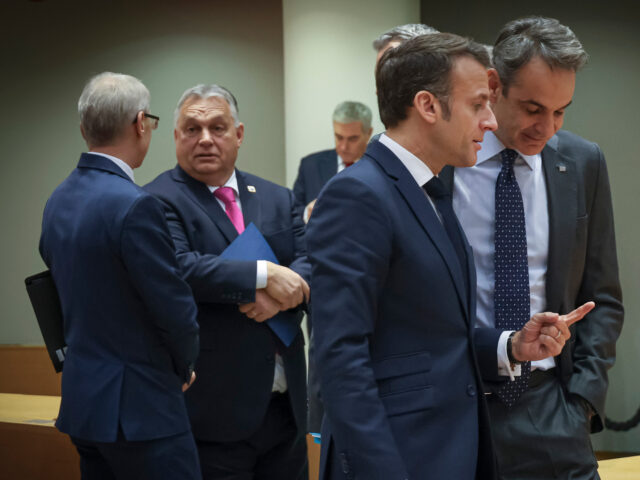The European Union is reportedly preparing to use a Covid-era accounting trick to subvert the democratic process and skirt Hungary’s veto on continuing to send billions to Ukraine.
While the EU is typically bound by the principle of unanimity from member states on major foreign policy decisions, meaning that all countries within the bloc must agree, Brussels is reportedly considering plans to use an emergency measure to send an additional €20 billion in funding to Ukraine after a four-year €50 billion package was blocked by Hungarian Prime Minister Viktor Orbán earlier this month.
The accounting trick, which was deployed during the during the Chinese coronavirus crisis to subsidise lockdowns and stay-at-home diktats, involves member states announcing commitments to the EU budget and thereby enabling Brussels to borrow against the guarantees from capital markets.
Although some countriesk, such as Germany and the Netherlands would require parliamentary assent to agree to the move, Eurocrats believe that this could be accomplished early next year and be able to send Kyiv the funding by March, the Financial Times reports.
Through using this emergency funding mechanism, the EU would be able to sidestep the threatened veto from Hungary as it does not require the unanimous consent of all 27 member states as long as the leading economies participate in the move. Should European leaders agree to the plan by the end of January, the International Monetary Fund would be then freed to send its next round of $900 million in funding to Ukraine.
Some within Brussels are hesitant about the plan, however, given that it would only allow the EU to provide loans to Ukraine rather than merely supplying the country with financial aid grants.
‘There Are No Exceptions!’: Orban Rejects Ukraine Membership at EU Showdown Summit https://t.co/NFV3n6PJV0
— Breitbart London (@BreitbartLondon) December 14, 2023
Even if the EU manages to pull off the accounting trick and avoid the veto from Hungary to continue funding the war against Russia, Budapest — at least for now — has the power to prevent the ascension proceedings to admit Ukraine into the European Union, which has become a chief goal for the globalist wing within the bloc.
Prime Minister Orbán has argued that it would be dangerous for the EU to admit a country with its borders in dispute, such as Ukraine, as it could lead to a hot war between Russia and the rest of Europe. The Hungarian leaders has maintained that the West should seek a peace settlement between Moscow and Kyiv rather than continuing to fund the war or to make any move to integrate Ukraine into the EU.
He has also warned that “swiftly” admitting Ukraine into the bloc — as has been advocated for by the likes of EU cheif Ursula von der Leyen — would lead to disastrous economic effects, particularly for European farmers, who would see the prices of the produce vastly undercut by the much cheaper labour force in Urkaine.
Commenting on the budget dispute last week, Orbán highlighted the economic conditions facing his own people: “If we give fifty billion euros from the EU budget to Kyiv, it means giving away Hungarian money.”
In response to the unwillingness of Hungary to here have been growing calls among leading Eurocrats, including the bloc’s Foreign Affairs chief Josep Borrell, to diminish the principle of unanimity and potentially void the the veto power of individual member states.
While this principle has been fundamental in convincing smaller nations to join the EU, providing them some assurance that they would not be steamrolled by larger nations such as France and Germany, the ability of nations such as Hungary to pushback against the globalist agenda has ruffled the feathers of the power-players in Brussels.
‘From Lisbon to Luhansk’ — EU Will Expand into Russian-Controlled Territory of Ukraine, Vows German Foreign Ministerhttps://t.co/fPHrEHsFac
— Breitbart London (@BreitbartLondon) October 3, 2023

COMMENTS
Please let us know if you're having issues with commenting.